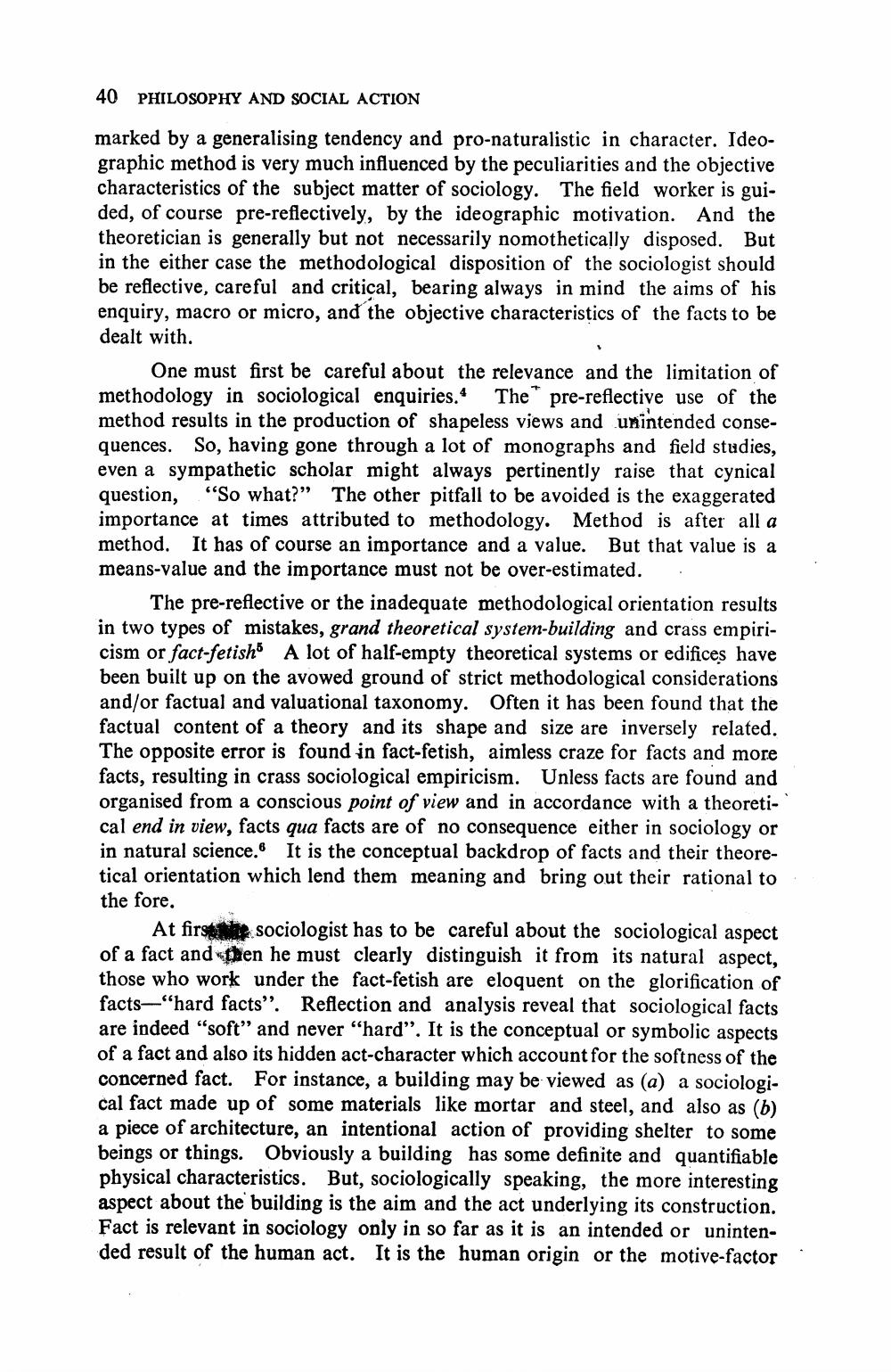Book Title: Matter And Method In Sociology And Ideology Author(s): D P Chattopadhyaya Publisher: D P Chattopadhyaya View full book textPage 2
________________ 40 PHILOSOPHY AND SOCIAL ACTION marked by a generalising tendency and pro-naturalistic in character. Ideographic method is very much influenced by the peculiarities and the objective characteristics of the subject matter of sociology. The field worker is guided, of course pre-reflectively, by the ideographic motivation. And the theoretician is generally but not necessarily nomothetically disposed. But in the either case the methodological disposition of the sociologist should be reflective, careful and critical, bearing always in mind the aims of his enquiry, macro or micro, and the objective characteristics of the facts to be dealt with. One must first be careful about the relevance and the limitation of methodology in sociological enquiries. The pre-reflective use of the method results in the production of shapeless views and unintended consequences. So, having gone through a lot of monographs and field studies, even a sympathetic scholar might always pertinently raise that cynical question, “So what?” The other pitfall to be avoided is the exaggerated importance at times attributed to methodology. Method is after all a method. It has of course an importance and a value. But that value is a means-value and the importance must not be over-estimated. . The pre-reflective or the inadequate methodological orientation results in two types of mistakes, grand theoretical system-building and crass empiricism or fact-fetish A lot of half-empty theoretical systems or edifices have been built up on the avowed ground of strict methodological considerations and/or factual and valuational taxonomy. Often it has been found that the factual content of a theory and its shape and size are inversely related. The opposite error is found in fact-fetish, aimless craze for facts and more facts, resulting in crass sociological empiricism. Unless facts are found and organised from a conscious point of view and in accordance with a theoretical end in view, facts qua facts are of no consequence either in sociology or in natural science. It is the conceptual backdrop of facts and their theoretical orientation which lend them meaning and bring out their rational to the fore. At first lite sociologist has to be careful about the sociological aspect of a fact and then he must clearly distinguish it from its natural aspect, those who work under the fact-fetish are eloquent on the glorification of facts-“hard facts”. Reflection and analysis reveal that sociological facts are indeed “soft” and never “hard”. It is the conceptual or symbolic aspects of a fact and also its hidden act-character which account for the softness of the concerned fact. For instance, a building may be viewed as (a) a sociological fact made up of some materials like mortar and steel, and also as (6) a piece of architecture, an intentional action of providing shelter to some beings or things. Obviously a building has some definite and quantifiable physical characteristics. But, sociologically speaking, the more interesting aspect about the building is the aim and the act underlying its construction. Fact is relevant in sociology only in so far as it is an intended or unintended result of the human act. It is the human origin or the motive-factorPage Navigation
1 2 3 4 5 6 7 8 9 10 11 12 13 14 15 16 17
